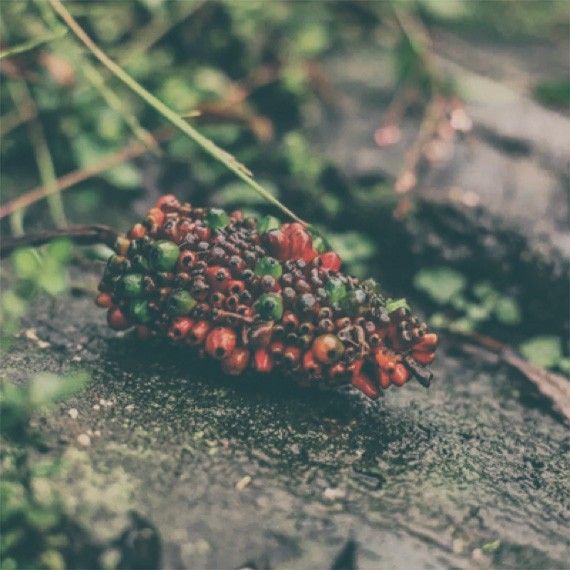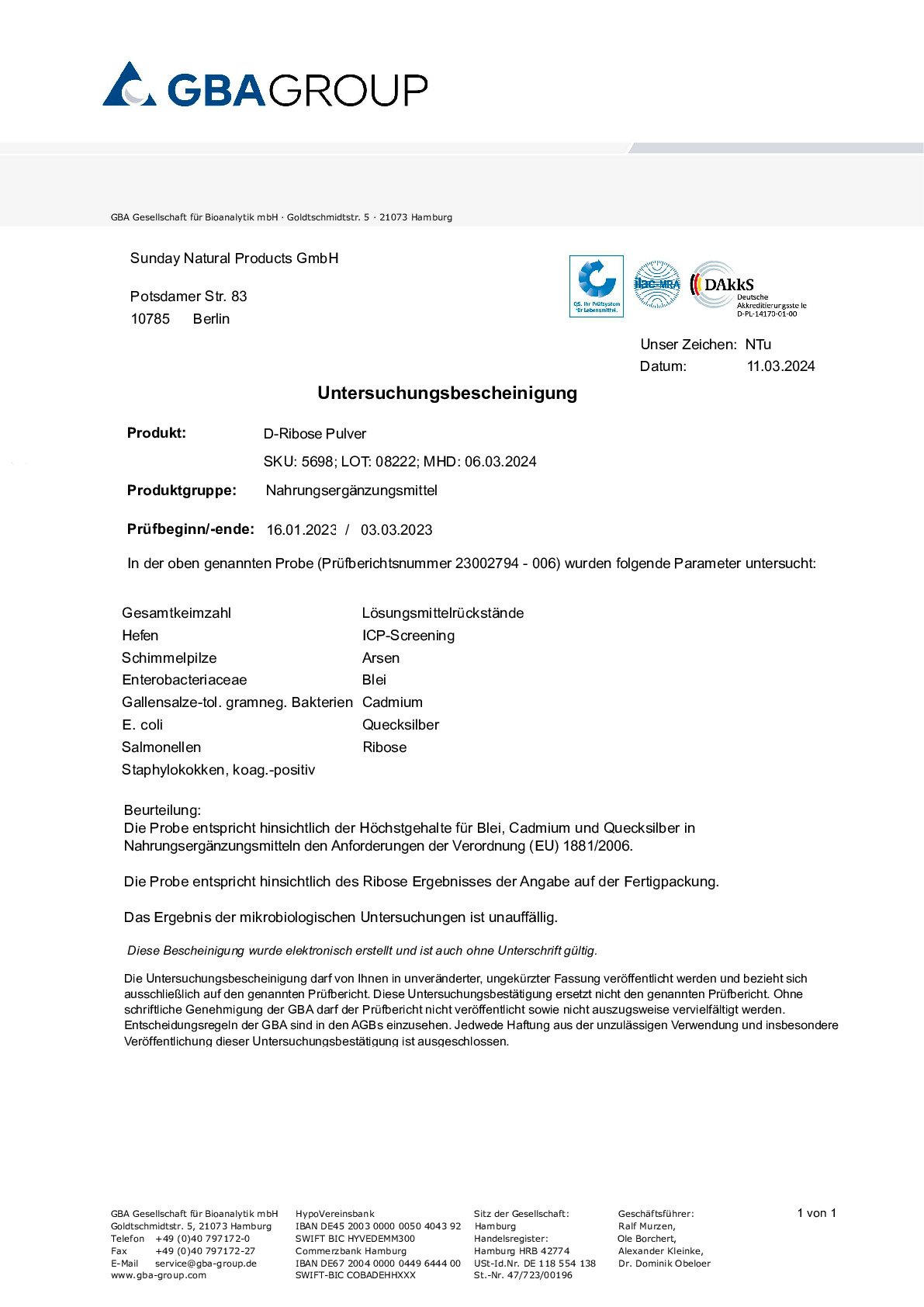D-ribose is the naturally most abundant, granular form of ribose. Via the pentose phosphate pathway, D-glucose (hexose) is converted into D-ribose (pentose) in the body. The enantiomeric L-ribose is of little importance in nature and is often formed during the chemical synthesis of ribose.
D-ribose is counted among the monosaccharides and has a low sweetening power, which corresponds to about 30% of common household sugar.




























